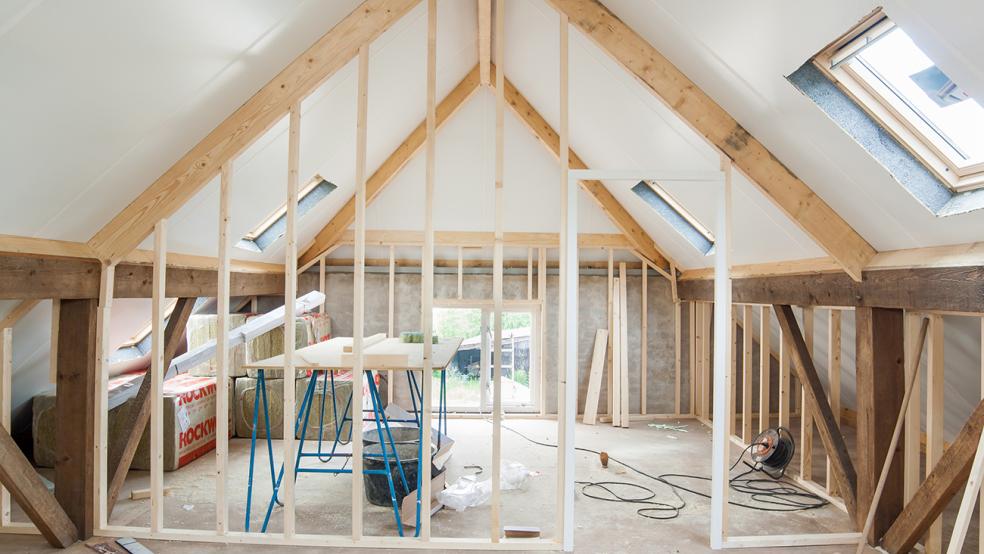Whether you renovate your kitchen, sell your home or simply pay your monthly mortgage, Uncle Sam has a tax break for you. Overall, there are two tax credits, six deductions and four other tax rules for the more than 86 million Americans who own their homes.
Three of these may not be around next year as Congress looks to overhaul the tax code, so use them if you can before it’s too late.
1. Deduction for state and local property tax.
You know those pesky — and sometimes substantial — real estate taxes levied by your state or town? They are deductible on your federal taxes. To get the deduction, you must have paid those taxes to the state or other municipality in the 2016 tax year. You can also include prepaid taxes for this year. Any real estate taxes you paid for a foreign property or school taxes derived from your property’s value are also deductible. Assessments for local improvements, library taxes or charges not based on your property’s value such as trash collection are not deductible.
Related: The Best and Worst States for Property Taxes in 2017
2. Mortgage interest deduction.
This is another huge deduction for homeowners paying a mortgage. Any interest you pay on any kind of loan on a primary or second home is deductible on federal taxes. This includes a mortgage, second mortgage, line of credit or home equity loan. There are limits, though. The deduction is available to home loans of $1 million or less, and the interest deduction on home equity is capped at $100,000.
3. Mortgage points deduction.
Mortgage points — fees paid to a lender to reduce the interest rate on a new home loan — are also deductible on federal taxes. The deduction applies to points you paid in the tax year and comes with a few requirements:
- The house that secures the mortgage must be your main residence
- The home loan must have been used to buy or build your main home.
- Mortgage points should be an established business practice in your area; the amount you paid shouldn’t exceed the area’s norm; and the amount must be listed as points on your settlement statement.
- You can’t borrow from a lender or mortgage broker to pay for the points.
4. Refinancing points deduction.
You can deduct refinancing points, similar to mortgage points, over the life of the new home loan. If some of the money from the refinancing goes to home renovations, then you can only deduct the amount of the points related to the home improvement in that year. The rest of the points can be deducted over the life of the mortgage.
Related: 10 Key Tax Deadlines for 2017
5. Lowering capital gains through home improvements.
Home improvements increase how much you have invested in your home, adding to the tax basis in the house. This is important when you sell your home because the tax basis reduces the capital gains from the sale. Homeowners don’t have to pay taxes on home sale gains, up to $250,000 ($500,000 if married filing jointly). Above that, they have to pay taxes. But keep in mind that the IRS doesn’t consider needed repairs or maintenance as qualified improvements.
6. Green home improvement credit no. 1.
Homeowners who last year purchased qualified energy equipment like hot water heaters, geothermal heat pumps, wind turbines and fuel cells, can claim 30 percent of the total cost (including installation) through the Residential Energy Efficient Property Credit. The limit for fuel cells is $500 for each half-kilowatt of power capacity, but there are no maximums for wind, solar and geothermal equipment. If you’re looking ahead, this credit is available through 2021.
7. Green home improvement credit no. 2.
If last year you installed certain home equipment or materials that meet the relevant efficiency standards, you may qualify for the Nonbusiness Energy Property Credit, worth 10 percent of the total improvement cost. It is available for qualifying insulation, exterior doors, windows, skylights, roofing, central air conditioning systems, water heaters and pumps and furnaces. There is a lifetime limit of $500, and this credit has not been extended beyond the 2016 tax year.
Related: 6 Red Flags That Might Get You Audited by the IRS
8. Capital gains exclusion on home sale.
Capitals gains up to $250,000 ($500,000 if married filing jointly) from the sale of your house are not taxed, subject to the following requirements:
- The home must have been your main residence for at least two of the last five years before the sale.
- The home was not bought in a like-kind exchange, or 1031 exchange, in the last five years.
9. Lowering capital gains through home sale costs.
Expenses related to selling your home — including real estate agent sales commissions and legal fees — lower the profit you get from the sale. That lowers or zeroes out taxable capital gains.
10. Mortgage premium insurance deduction.
Homeowners can deduct their 2016 payments for private mortgage insurance. Lenders require this insurance if homeowners provide less than 20 percent down toward their home purchase. This deduction was put in place by the Tax Relief and Health Care Act of 2006, but has not been extended past 2016 by Congress.
11. Mortgage debt relief.
The IRS usually taxes any amount of debt that has been canceled or forgiven by a lender. But struggling homeowners with restructured mortgages or who had debt forgiven last year after a foreclosure or short sale are exempt from this taxation, up to $2 million. This exemption, enacted in 2007, has not been extended past 2016.
12. Deduction for moving to a new home.
If you take a job in a new city or relocate for your current employer, your moving costs (including gas) can be deductible on federal taxes. The move must be at least 50 miles from your home.





